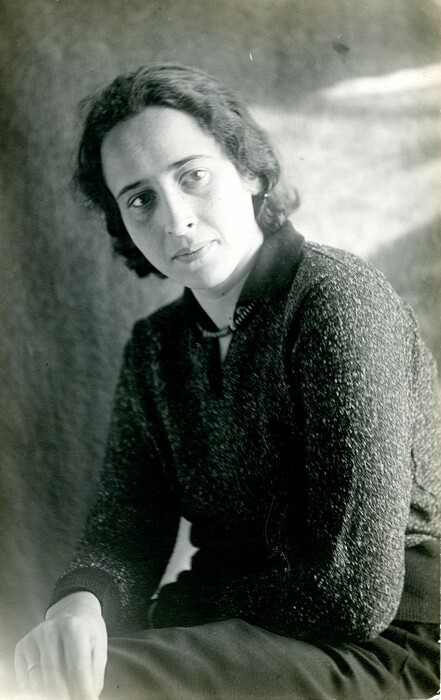


Hitler's boring executioners
German officials jokingly cut off ultra-Orthodox Jew's curls to humiliate him
Arendt's book Eichmann in Jerusalem drew heavily on Raoul Hilberg's excellent work The Extermination of European Jewry. Although Hilberg's work was groundbreaking in many ways, it was not without its faults; quite a few. Dealing with the role of the Jewish Councils was one of his major weaknesses. Hilberg relied mainly on non-Jewish sources, which often presented Jews according to the crudest anti-Semitic stereotypes: Jews were submissive and servile, easily yielding to the lure of self-interest. Thus, according to Hilberg, the cooperation of the Jtidenrat was a simple enough affair; the fulfillment of a deep-rooted Jewish predisposition to acquiesce in the face of persecution. However, this simplistic portrayal of the Jewish reaction is becoming increasingly difficult to support in the face of the mounting evidence gathered by recent research.
The strategy of the Jewish Councils was to exchange goods and forced labor in the hope of saving Jewish lives. Under the circumstances, it seemed a reasonable approach. It was a tactic that proved effective until the last evictions, when, without warning, all other options ceased to exist. Moreover, these kinds of negotiations sought to exploit the tensions between members of the German high command over whether the exploitation of Jewish labor for war purposes or the non-utilitarian logic of the "Final Solution" should prevail.
Like Hilberg, Arendt did not distinguish between the various stages of Jewish collaboration with their Nazi persecutors. This gradation, however, is crucial to the assessment of Jewish culpability. During the initial mass deportations, many leaders of the Jewish Councils refused to surrender Jewish lives as ordered by the Nazis. The SS, as soon as they faced intransigence, either arrested the Jewish leaders or executed them on the spot. Often the Nazis then proceeded to carefully select a second generation of Jewish leaders whose willingness to cooperate could not be doubted. It was primarily under the leadership of this second series of Nazi-selected officials of the Jewish Councils that the deportations proceeded. As Yehuda Bauer observes in his book A History of the Holocaust: "The histories of most ghettos can be divided [...] into two periods: before and after the first mass murders." In the eastern Galician town of Stanislavov, for example, three successive leaders of a Jewish Council were executed for refusing to hand over Jews.
In the book Judenrat: Jewish Councils in Eastern Europe under Nazi Occupation (1972), Isaiah Trunk demonstrated conclusively how Jewish "collaboration", far from voluntary, was mainly the product of coercion by the Germans. In almost all cases, the Nazis forced Jews to form the councils, forced Jews to serve on them, and compelled them to cooperate, often under threat of the most brutal reprisals. In addition, when circumstances permitted, many of the councils supported Jewish resistance actions. Some, such as the Warsaw Ghetto Council, were democratically organized. Such critical differences, however, are flattened in Arendt's unsympathetic portrayal of councils.
Few would deny that there was corruption in parts of the Jewish leadership. As Gershom Solem observes: “Some of them were pigs, some were saints. There were also among them many people not unlike us, who were forced to make horrible decisions under circumstances which it is impossible for us even to begin to relate or imagine.' What Solem found disturbing in Arendt's version was what he called "a kind of demagogic will to aggrandizement." Solem comments: “I don't know if they were right or wrong. Nor dare I judge. I wasn't there."

As Michael Marus has aptly observed, as the Eichmann polemic unfolded in Jerusalem, "it became apparent how flimsy the factual basis was on which [Arendt] had based her judgments." He concludes with the following sober warning: "Jewish negotiations with the Nazis [...] were, in retrospect, futile attempts to snatch Jews from the ovens of Auschwitz at a time when the Third Reich was on its death throes." However, it should be noted that, futile as they were, these efforts seemed reasonable to some reasonable people who found themselves trapped in a hopeless situation.
By and large, Arendt, while roundly condemning Jewish leadership, showed little understanding—and even less sympathy—for the contingencies and extremes of dire historical circumstances. As for Rumkowski's corrupt rule in the Łódź ghetto, it has often been pointed out that if Soviet troops had arrived a few months earlier, he would have gone down in history as a hero, not a traitor.
Comments
Post a Comment